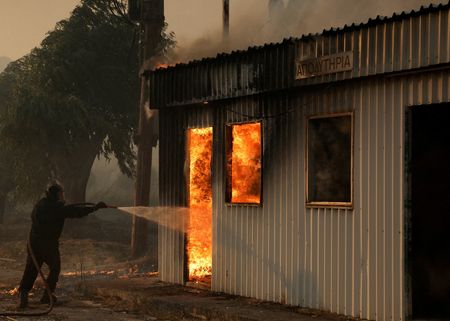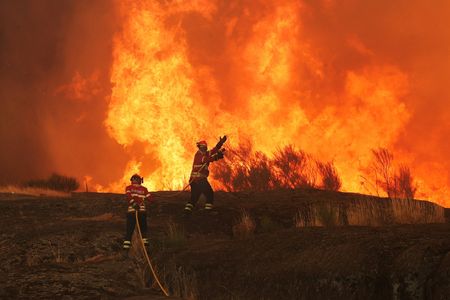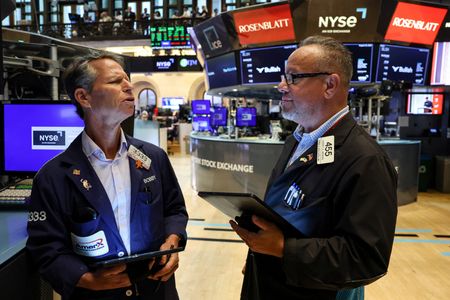By Rashika Singh
(Reuters) -CoreWeave shares fell 11% on Wednesday after the Nvidia-backed company posted a bigger-than-expected loss, raising doubts about its ability to keep costs under check amid robust AI demand.
The AI infrastructure firm’s operating expenses jumped nearly fourfold to $1.19 billion in the second quarter, underscoring the tension between its rapid revenue growth and mounting financial strain.
Analysts have turned skeptical of CoreWeave’s excessive dependence on certain customers and its ability to grow profitably due to widening losses, heavy capital needs and deteriorating debt coverage.
One of its big customers, OpenAI, has been signing deals for additional compute capacity to build out its ChatGPT service.
“CoreWeave does not currently generate enough profit to pay all its debt holders, certainly not equity holders,” D.A. Davidson analysts said.
The company, which went public in March, had around $8 billion in debt as of last year and had said it would use about $1 billion of the IPO proceeds to repay debt.
With CoreWeave’s lockup period expiring on Thursday, analysts expect the stock to remain volatile as company insiders will be allowed to sell their shares for the first time since the firm went public.
“The initial stock action (is) likely more related to anticipation into the lock-up expiration later this week than any new fundamental concerns,” Deutsche Bank analysts said.
CoreWeave operates 33 AI data centers in the U.S. and Europe, offering access to Nvidia’s GPUs, which are highly sought after for training and running large AI models.
“It’s an expensive business trying to stay ahead of the game and ensure enough capacity to underpin the demand for artificial intelligence services,” said Susannah Streeter, head of money and markets at Hargreaves Lansdown.
Surging demand for its AI infrastructure helped the company top quarterly revenue estimates. Its stock price has jumped nearly three-fold since its IPO in March.
(Reporting by Rashika Singh and Zaheer Kachwala in Bengaluru; additional reporting by Lance Tupper in New York; Editing by Arun Koyyur)










